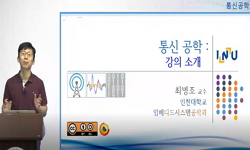The growing body of research on corrective error feedback in the past two decades has been mostly carried out in the ESL context and has concluded its effectiveness, with controversy remaining regarding its effects on EFL learners. The present study w...
http://chineseinput.net/에서 pinyin(병음)방식으로 중국어를 변환할 수 있습니다.
변환된 중국어를 복사하여 사용하시면 됩니다.
- 中文 을 입력하시려면 zhongwen을 입력하시고 space를누르시면됩니다.
- 北京 을 입력하시려면 beijing을 입력하시고 space를 누르시면 됩니다.


Error Correction in College EFL Writing Instruction: Students’ Expectations and Correction Effects
한글로보기https://www.riss.kr/link?id=A106278216
-
저자
JINXIAOLING (Shanghai Jiao Tong University)
- 발행기관
- 학술지명
- 권호사항
-
발행연도
2015
-
작성언어
English
- 주제어
-
등재정보
KCI등재,SCOPUS,ESCI
-
자료형태
학술저널
-
수록면
117-140(24쪽)
-
KCI 피인용횟수
0
- 제공처
-
0
상세조회 -
0
다운로드
부가정보
다국어 초록 (Multilingual Abstract)
The growing body of research on corrective error feedback in the past two decades has been mostly carried out in the ESL context and has concluded its effectiveness, with controversy remaining regarding its effects on EFL learners. The present study was set in the college EFL context. A survey at the beginning of the study suggested that students preferred indirect error correction where instructors underline errors and indicate error types at the same time. The one-semester experiment focused on the effects of two types of indirect error correction regarding seven treatable errors. The results showed that both types of indirect error correction were effective as the number of errors per hundred words decreased significantly in the post-test. In the delayed post-test, the group that received coded error correction maintained a significant improvement in language accuracy compared with the pre-test, suggesting that underlining errors coupled with providing error codes has better delayed effects. However, some types of errors showed an increase in frequency from the pre-test to the delayed post-test, despite the significant decrease in the total number of errors.
참고문헌 (Reference)
1 Evans, N. W., "Written corrective feedback : The practitioners’ perspectives" 10 (10): 47-77, 2010
2 Ferris, D., "Treatment of error in second language student writing" University of Michigan Press 2002
3 Han, Y., "The intra-and inter-task effectiveness of direct and indirect written corrective feedback" 8 (8): 71-96, 2012
4 Jean Chandler, "The efficacy of various kinds of error feedback for improvement in the accuracy and fluency of L2 student writing" Elsevier BV 12 (12): 267-296, 2003
5 Rod Ellis, "The effects of focused and unfocused written corrective feedback in an English as a foreign language context" Elsevier BV 36 (36): 353-371, 2008
6 John Bitchener, "The effect of different types of corrective feedback on ESL student writing" Elsevier BV 14 (14): 191-205, 2005
7 Ferris, D., "The case for grammar correction in L2 writing classes: A response to Truscott (1996)" 8 (8): 1-11, 1999
8 John Bitchener, "Raising the linguistic accuracy level of advanced L2 writers with written corrective feedback" Elsevier BV 19 (19): 207-217, 2010
9 Chen, X., "Jiaoshi shumian xiuzhengxing fankui dui xuesheng yingyu xiezuo de yingxiang [Impact of instructor written corrective feedback on student English writing]" 41 (41): 351-358, 2009
10 Danielle Guénette, "Is feedback pedagogically correct?" Elsevier BV 16 (16): 40-53, 2007
1 Evans, N. W., "Written corrective feedback : The practitioners’ perspectives" 10 (10): 47-77, 2010
2 Ferris, D., "Treatment of error in second language student writing" University of Michigan Press 2002
3 Han, Y., "The intra-and inter-task effectiveness of direct and indirect written corrective feedback" 8 (8): 71-96, 2012
4 Jean Chandler, "The efficacy of various kinds of error feedback for improvement in the accuracy and fluency of L2 student writing" Elsevier BV 12 (12): 267-296, 2003
5 Rod Ellis, "The effects of focused and unfocused written corrective feedback in an English as a foreign language context" Elsevier BV 36 (36): 353-371, 2008
6 John Bitchener, "The effect of different types of corrective feedback on ESL student writing" Elsevier BV 14 (14): 191-205, 2005
7 Ferris, D., "The case for grammar correction in L2 writing classes: A response to Truscott (1996)" 8 (8): 1-11, 1999
8 John Bitchener, "Raising the linguistic accuracy level of advanced L2 writers with written corrective feedback" Elsevier BV 19 (19): 207-217, 2010
9 Chen, X., "Jiaoshi shumian xiuzhengxing fankui dui xuesheng yingyu xiezuo de yingxiang [Impact of instructor written corrective feedback on student English writing]" 41 (41): 351-358, 2009
10 Danielle Guénette, "Is feedback pedagogically correct?" Elsevier BV 16 (16): 40-53, 2007
11 Hedgcock, J., "Feedback on feedback : Assessing learner receptivity to teacher response in L2 composing" 3 (3): 141-163, 1994
12 Ferris, D., "Feedback in second language writing: Contexts and issues" Cambridge University Press 81-104, 2006
13 John Bitchener, "Evidence in support of written corrective feedback" Elsevier BV 17 (17): 102-118, 2008
14 Ferris, D., "Error feedback in L2 writing classes: How explicit does it need to be?" 10 (10): 161-184, 2001
동일학술지(권/호) 다른 논문
-
Competence and Capability : Rethinking the Subject English
- 아시아영어교육학회
- Henry Widdowson
- 2015
- KCI등재,SCOPUS,ESCI
-
- 아시아영어교육학회
- Jihyeon Jeon
- 2015
- KCI등재,SCOPUS,ESCI
-
The Impact of L1 Reading Directionality Mode on L2 Reading Fluency
- 아시아영어교육학회
- Bakhtiar Naghdipour
- 2015
- KCI등재,SCOPUS,ESCI
-
- 아시아영어교육학회
- Ida Fatimawati bt Adi Badiozaman
- 2015
- KCI등재,SCOPUS,ESCI
분석정보
인용정보 인용지수 설명보기
학술지 이력
| 연월일 | 이력구분 | 이력상세 | 등재구분 |
|---|---|---|---|
| 2023 | 평가예정 | 해외DB학술지평가 신청대상 (해외등재 학술지 평가) | |
| 2020-01-01 | 평가 | 등재학술지 유지 (해외등재 학술지 평가) |  |
| 2018-03-29 | 학회명변경 | 한글명 : 아시아영어교육학회 -> 아시아테플영문명 : The Asian Association Of Teachers Of English As A Foreign Language (Asia Tefl) -> AsiaTEFL (The Asian Association of Teachers of English As a Foreign Language) |  |
| 2013-10-01 | 평가 | 등재학술지 선정 (기타) |  |
| 2010-01-01 | 평가 | SCOPUS 등재 (신규평가) |  |
학술지 인용정보
| 기준연도 | WOS-KCI 통합IF(2년) | KCIF(2년) | KCIF(3년) |
|---|---|---|---|
| 2016 | 0 | 0 | 0 |
| KCIF(4년) | KCIF(5년) | 중심성지수(3년) | 즉시성지수 |
| 0 | 0 | 0 | 0 |




 KCI
KCI



